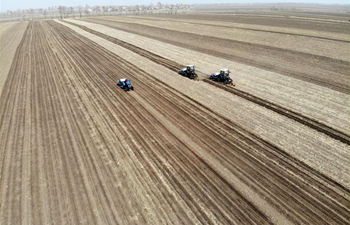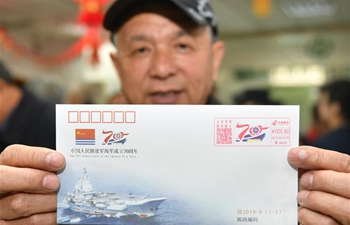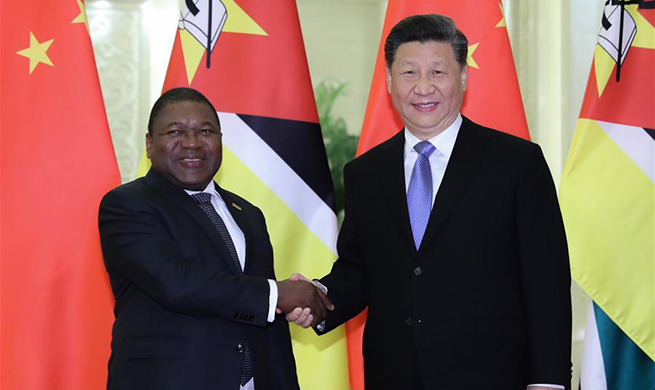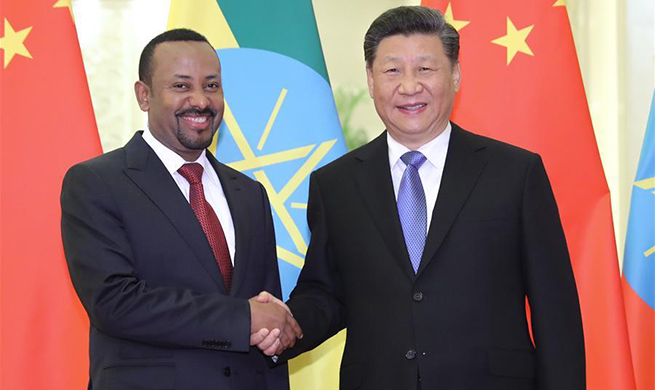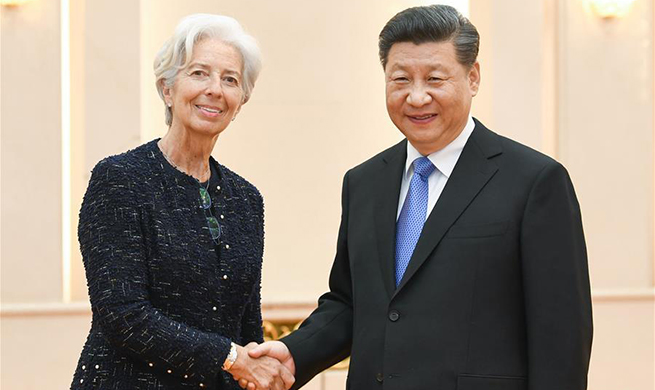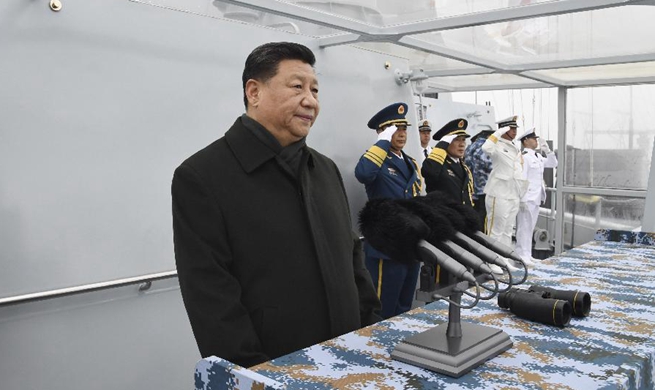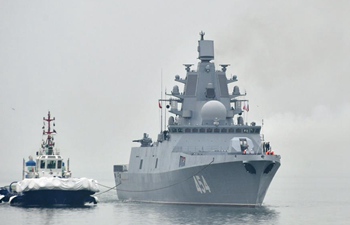CHANGSHA, April 24 (Xinhua) -- China will promote international space cooperation to contribute to sustainable development goals set by the United Nations, a senior official with the China National Space Administration (CNSA) said Wednesday.
"China is to build a new type of cooperative and win-win relationship with other space agencies and international organizations around the world, to jointly enhance the role of space industries in facilitating sustainable development," said CNSA deputy director Wu Yanhua at the United Nations/China Forum on Space Solutions: Realizing the Sustainable Development Goals.
Committed to better service for countries along the Belt and Road Initiative, especially developing countries, China is constructing a space information corridor and sharing satellite resources, according to Wu.
"China's earth observation satellites have actively supported the construction of the Belt and Road spatial information corridor, vigorously developed space international cooperation," said Wang Cheng, a researcher from the CNSA.
FY-2H, the meteorological satellite located over the Indian Ocean, can fill the observation gap and provide weather monitoring service to countries along the Belt and Road, said Tang Shihao from China Meteorological Administration.
The unique strength of satellites in supporting telemedicine, epidemic prevention and control, and distance education, social security services can be improved, Wu said.
Independently constructed and operated by China, the BeiDou Navigation Satellite System has been widely used in many countries and regions. "The system started to provide RNSS (Radio Navigation Satellite System) services worldwide last December," said Gao Weiguang from China Satellite Navigation Project Center.
Wu Yanhua said that China was developing space economy and supporting commercial space development by pushing forward the commercialization of space technologies.
As the provider of Long March launch services, the China Great Wall Industry corporation (CGWIC) has performed 48 dedicated launch services and 17 piggyback launch services to international clients with high successful rate and competitive pricing, according to Zhou Yuanying from CGWIC.
Wu said that China would undertake monitoring and research of global climate change by taking advantage of satellites, to achieve the goals outlined in the Paris Agreement.
By pushing forward international space cooperation, China is also committed to joint efforts to tackle contemporary issues with global impact including poverty, hunger, natural disasters and environmental pollution, Wu added.




